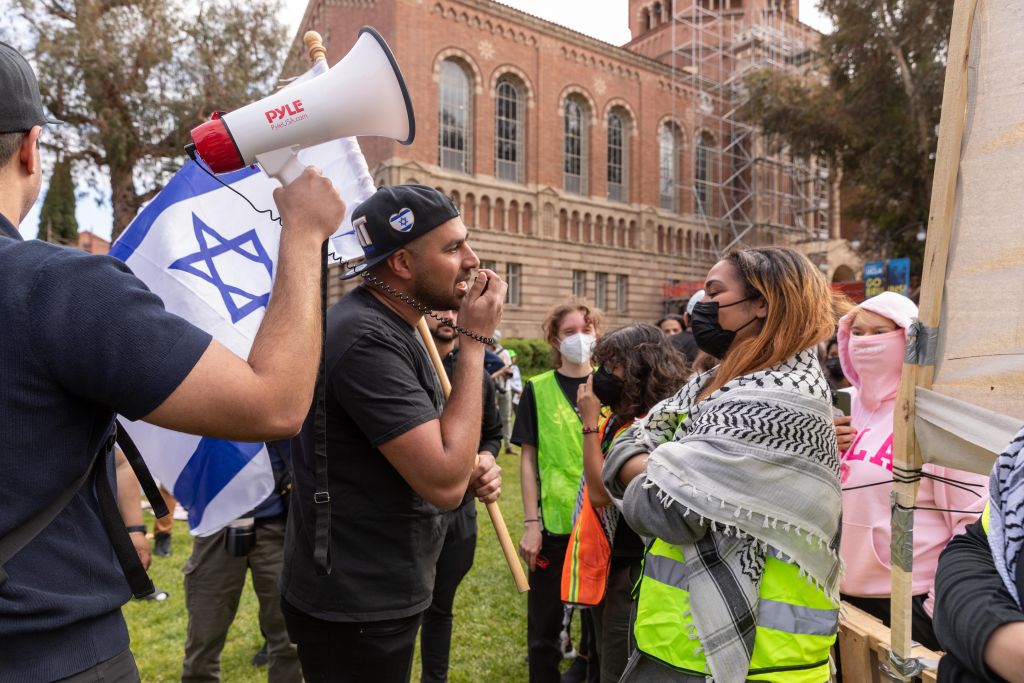Some 70% of faculty at US universities say they have difficulty talking openly about the Israel-Palestine conflict on campus, according to a new report from the Foundation for Individual Rights and Expression (FIRE).
“Silence in the Classroom” surveyed more than 6,000 academics on freedom of expression on college campuses. It concluded that while the feeling was not universal, a significant number of faculty members “report not being able to have an open and honest conversation on campus about important issues of the day”.
More than a third (35%) said they recently toned down their writing for fear of controversy, compared to 9% who said the same during the McCarthy era. Some 23% of faculty worry about losing their jobs because of a misunderstanding over something they say or do, while 27% feel unable to speak freely for fear of how students, administrators, or other faculty might respond.
| Which contentious subjects do US university staff report finding it difficult to speak openly about? |
The data show that feelings of self-censorship and fears over voicing opinions are split along political lines, with conservative-leaning faculty more likely to say they are affected. For example, only 17% of liberal staff said they “at least occasionally hide their political views in order to keep their jobs”, compared to 55% of conservatives.
FIRE’s report comes after a tumultuous year on university campuses across America in the wake of renewed conflict in the Middle East. In the spring, significant pro-Palestine encampments were set up at Columbia University and UCLA, among other universities. The protests were marred by violence, with over 300 protestors arrested at Columbia and over 250 arrested in LA.
Throughout the year, there have been many examples of antisemitic or threatening behaviour towards Jewish students and faculty. This was preceded by a Congressional hearing in late 2023 when the heads of Harvard, MIT, and the University of Pennsylvania all refused to say whether calls for the genocide of Jews constituted harassment according to university guidelines. Of the three, only MIT’s president, Sally Kornbluth, is still in her post.
While the report details that 70% of faculty find it difficult to talk honestly about the war in the Middle East, there are other topics which academics avoid. Many also say they have difficulty talking openly about racial inequality (51%), transgender rights (49%), affirmative action (47%), and the presidential election (41%).
Reports of a chilling effect and campus censorship are not new. In January, a previous FIRE study found that 85% of American universities have policies in place that restrict speech. In another study, which the report quotes, upwards of 70% of students reported thinking that professors who say something offensive should be reported.
The new figures from FIRE also show that many academics disagree with some institutional policies which have become the norm. Half (50%) of the faculty surveyed said “it is rarely or never justified to require faculty job candidates to submit statements pledging commitment to diversity, equity, and inclusion”. Two-thirds (66%) said colleges and universities should not take positions on political and social issues.
In the wake of campus protests, many universities have committed to institutional neutrality, although there is still the dilemma of how to protect free speech while maintaining order. The report concludes that “concerns over self-censorship in academia are not overblown”. It continues: “A climate of this type is not sustainable for higher education, at least not if higher education desires to uphold its truthseeking and knowledge-producing mission.”











Join the discussion
Join like minded readers that support our journalism by becoming a paid subscriber
To join the discussion in the comments, become a paid subscriber.
Join like minded readers that support our journalism, read unlimited articles and enjoy other subscriber-only benefits.
Subscribe